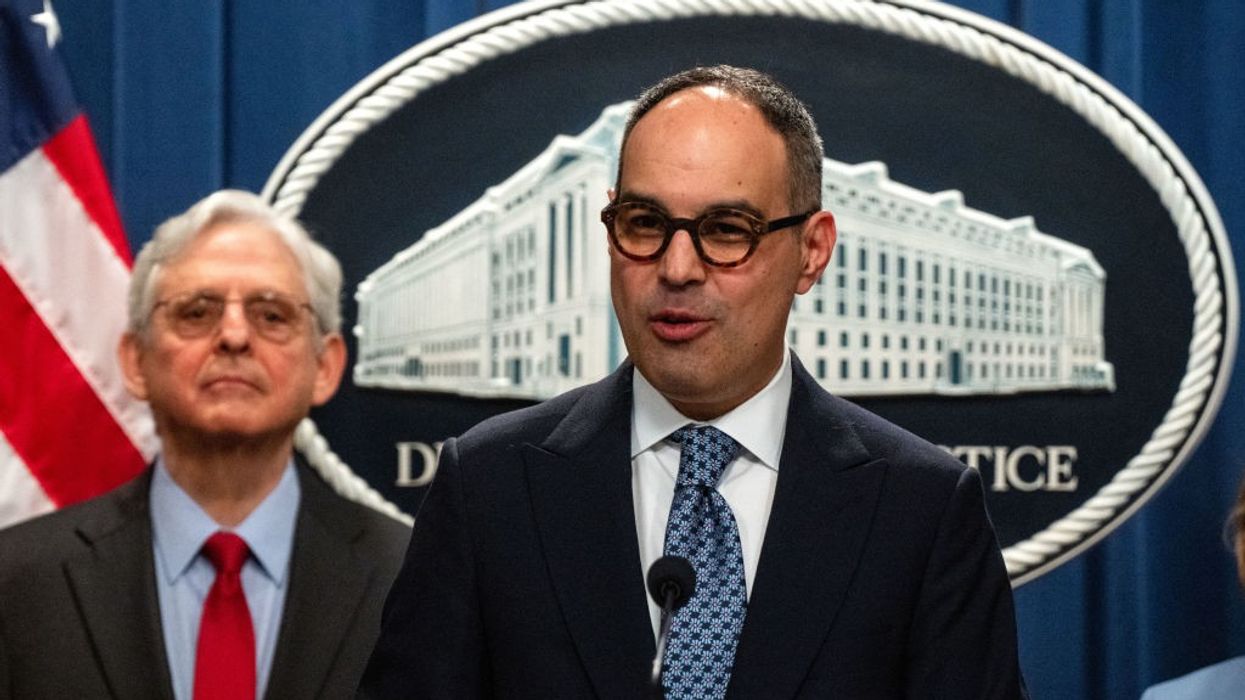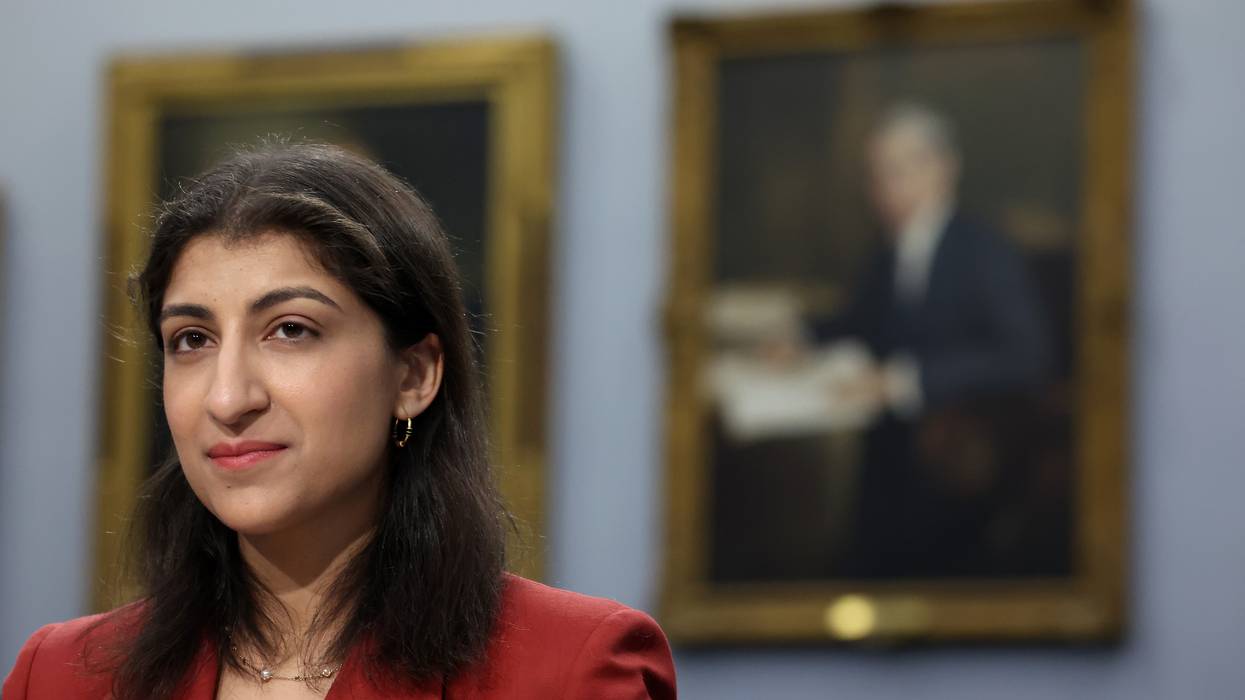After Two Setbacks For Google’s Monopoly, the Fight To Rein in Its Empire Continues
Long given an effective pass for its anti-competitive behavior, the company is finally getting its comeuppance in federal court, and not a moment too soon.
Don’t look now, but the federal government just notched not one, but two, major antitrust victories against one of the biggest corporations on Earth.
In the past few decades, digital monopolists like Google have built far-reaching empires impacting almost every facet of our online lives. Long given an effective pass for its anti-competitive behavior, the company is finally getting its comeuppance in federal court, and not a moment too soon.
Back in 2020, the Department of Justice (DOJ) sued Google for illegally monopolizing the search market. In 2023, this was followed by a second suit over the company’s digital advertising monopoly. In the first case, federal Judge Amit Mehta stated the obvious in his ruling that when it comes to the search engine market, Google is a monopolist; in April, the DOJ pushed an ambitious remedy proposal to dismantle its search monopoly. Google was dealt another blow in April in the second case, where judge Leonie Brinkema agreed that Google has illegally monopolized online advertising.
Antitrust enforcers are now making major strides toward reining in Google’s anti-competitive behavior.
There’s no question that Google’s monopoly is looking more fragile than ever. Even as Big Tech CEOs have bent over backwards to curry favor with the Trump administration, they’ve failed to stop antitrust efforts against them from continuing. And at a time when Meta is also in the antitrust hot seat in court, there’s real reason for optimism when it comes to finally taking Big Tech to task.
Nevertheless, when you consider the scale of Google’s empire, the search and digital advertising lawsuits should be seen as just the beginning of the battle. Sure, anyone who’s used a computer understands just how ubiquitous Google’s search engine is. But less obvious to most people is that it is set to control a media empire bigger than Disney, all while working to dominate the self-driving car market and gobble up promising startups. This doesn’t even get into the AI factor: As the DOJ noted in court, the rapid pace of AI development could further entrench Google’s monopoly if left unchecked.
Take YouTube, Google’s most powerful asset after search. As antitrust suits against Google in the U.S. and abroad have piled up in recent years, YouTube has often felt like a threat hidden in plain sight. Take the issue of advertising on YouTube, for example. The Information, a tech-focused publication, noted last year that Google has a policy of requiring would-be YouTube advertisers to use Google’s in-house DV360 tool. The impact of this rule has, predictably, been to put more money in Google’s pockets while deepening advertisers’ reliance on its services.
For $1.6 billion in 2006, Google was able to take control of what today is the world’s largest video platform, with the deal avoiding antitrust action. Almost 20 years later, there remains no real competitor to YouTube: Though TikTok and Instagram’s Reels compete with YouTube when it comes to short-form video, the service is without a peer in long-form, monetizable content.
In June 2024, a coalition of advocacy groups called on the DOJ to scrutinize YouTube. In their letter, they noted that the platform’s dominance is propped up by bundling practices that make it nearly impossible for rivals to compete. Of specific concern is that smart TVs emerging as a norm in U.S. households could allow Google and YouTube to cement its dominance in home entertainment.
Few moves better illustrate Google’s expansionist mindset (and arrogance in the face of antitrust lawsuits) than its bid to acquire Wiz. Though not a household name, there’s a reason that Google is intent on acquiring it, even after its initial bid was turned down. Despite launching just five years ago, Wiz has grown so fast that it is now used by roughly half of all Fortune 500 companies. By acquiring Wiz, Google will make other corporate giants even more dependent on its services, further fortifying its monopoly status.
Much of the coverage of the Wiz deal centers on its price tag, and for good reason. At $32 billion dollars, the Wiz acquisition stands to be the most expensive in Google’s history. This isn’t just notable because it is occurring in the face of multiple antitrust showdowns. But more unusual is that this figure is 30 times larger than Wiz’s expected revenue for 2025. While the math may seem peculiar at first, there’s likely more than meets the eye here.
Few have better insight into Google’s anti-competitive behavior than Jonathan Kanter, who took the company to court twice when he led the DOJ Antitrust Division under former President Joe Biden. In a recent CNBC interview, Kanter posited that the deal could be a “Trojan horse for Google to get access to data that is increasingly becoming out of its reach.”
In 2006, federal regulators fumbled the ball by allowing the acquisition of YouTube to go through unscathed. The next year, the Federal Trade Commission made the mistake of allowing Google’s acquisition of DoubleClick, a deal that would help build and cement the company’s digital advertising dominance. But two decades later, antitrust enforcers are now making major strides toward reining in Google’s anti-competitive behavior. As federal officials work to correct the mistakes of the past, they should continue taking a multifaceted approach to Google’s monopoly.


